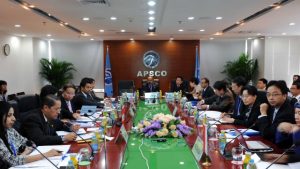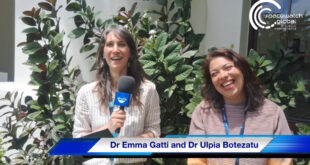
During the 10th annual summit of member states of the Asia-Pacific Space Cooperation Organisation (APSCO) it was announced that Iran has been given permission for its satellites to share the APSCO information system.
The summit, held in Istanbul, Turkey, on 6-8 September 2016, also agreed that Iranian satellites be accepted into the APSCO constellation of satellites. The summit was hosted by Dr. Orkun Hasekioğlu, Vice-President for Space at the Scientific and Technological Research Council of Turkey (TÜBİTAK).
Iranian Deputy Minister for Information Communication Technologies and head of the Iranian Aerospace Organisation, Mohsen Bahrami, chaired the APSCO session where the summit agreed to the Iranian proposals.
According to Iranian news organization Mehr News Agency, during the 10th annual APSCO summit, “member states discussed and exchanged opinions on joint space projects, training and staff development, sharing space information, and establishing a constellation of multi-tasking satellites and student small research satellites.”
APSCO is an inter-governmental space cooperation organization headquartered in Beijing, China, and its members include China, Bangladesh, Iran, Mongolia, Pakistan, Peru, Thailand, and Turkey. It was founded in 2005.
Original published at: http://spacewatchme.com/2016/09/iranian-satellites-share-information-system-asia-pacific-space-cooperation-organisation/
 SpaceWatch.Global An independent perspective on space
SpaceWatch.Global An independent perspective on space

